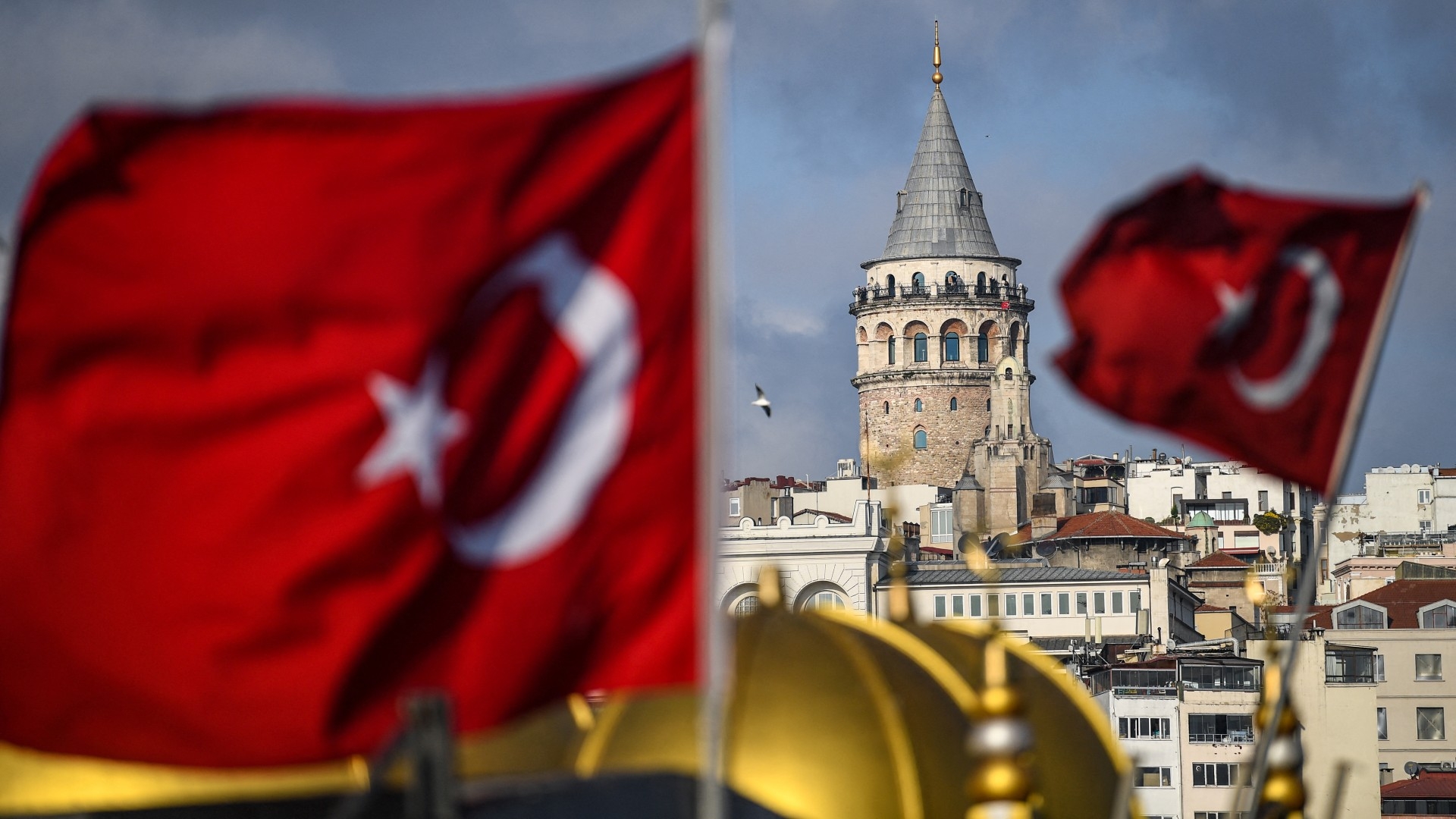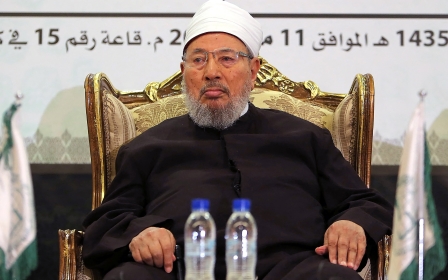The secret history of political Islam

The ongoing focus of both media and academia on the Muslim Brotherhood as the origin of “political Islam” belies the movement’s roots in the fierce debate over secularism and religion in the Ottoman empire’s final days.
It’s become fairly typical to consider the Ottoman-Turkish sphere as a category apart when it comes to political, religious and other affairs in the Middle East, as if only the Arabic element counts as authentic, and crossovers don’t count.
But this approach - which reflects the world view of modern nationalism - has obscured the process through which Islamist political ideology emerged from the premodern Islamic tradition in all its complexity.
Until the abolition of the caliphate in 1924, the Ottoman Islamist lobby held out hope that Ataturk would lean into Islamic faith and institutions to shore up identity and legitimacy in the new state
European secular nationalism - especially Auguste Comte’s anti-religion positivism - spread throughout various elite groups of Ottoman society in the late 19th century, not least the military, setting the scene for a showdown with clerics and devout intellectuals after the Young Turk revolution of 1908.
The debate quickly degenerated into extreme positions. The religious lobby - sensing that not only religious institutions but faith itself was under attack - described their opponents as essentially atheist, though most professed that they remained believers.
New MEE newsletter: Jerusalem Dispatch
Sign up to get the latest insights and analysis on Israel-Palestine, alongside Turkey Unpacked and other MEE newsletters
In this context, in 1913 nationalist intellectual Ziya Gokalp coined the terms Islamism (İslamcılık) and Islamist (İslamcı) in an effort to undercut the claim of these traditionalist clerics and their allies among devout intellectuals that one side was Muslim and the other was not - introducing this terminology decades before it became commonplace in regional political discourse.
Losing battle
In 1918, the Islamist position was defined further in a remarkable book by Said Halim Pasha, who, as Ottoman prime minister during the First World War, had fought a losing battle against ideologues of the ruling Committee of Union and Progress (CUP) over the role of Islam in education.
The book, İslamlaşmak (To Become Islamic), talked in the most explicit terms yet about Islam as a totality covering all aspects of modern life and the need of modern Muslims to take positive action to establish their Islamicness in the face of a state that, as he put it, had “distanced itself from Islam”.
These ideas were elaborated further in a 1923 book published in Arabic and Turkish in Istanbul by Egyptian cleric Abd al-Aziz Jawish, in collaboration with Turkish poet Mehmet Akif Ersoy, which gave Islamic prescriptions for understanding everything from family and food to architecture and history.
Here we have the basics of ideas later developed by figures such as Hassan al-Banna and Sayyid Qutb in Egypt and Abul A’la Mawdudi and Muhammad Iqbal in India and Pakistan, the essence of which was that the nature of liberal western political, economic and social systems is such that the faith of the Muslim living under their jurisdiction is in jeopardy. The response, they agreed, must be political.
Until the abolition of the caliphate in 1924, the Ottoman Islamist lobby held out hope that Mustafa Kemal Ataturk would lean into Islamic faith and institutions to shore up identity and legitimacy in the new state.
The most prominent figures then fled abroad as sharia courts were closed, Arabic script was banned and the call to prayer rendered in Turkish - winning, of course, western praise.
Those exiles had a deep impact in Egypt in particular, where they and the Turkish students they attracted to study with them moved within the circles of al-Banna’s new Muslim Brotherhood organisation, established in 1928.
From his new home in Cairo, Mustafa Sabri, the Ottoman grand mufti from 1919-1920, who remained Ataturk’s most vocal critic in the diaspora, wrote a searing critique of liberal constitutionalism as an arbitrary system subject to political whimtitled "The Definitive Word".
Reservations
But even al-Banna, despite paying the costs of publishing the book in 1943, expressed reservations over Sabri’s view that the liberal Muslim intellectuals who were ascendant in Egypt at that time had in effect exited Islam through their support for the secular view that all knowledge must be empirically provable, metaphysics be damned.
Sayyid Qutb - who mixed with Sabri in Cairo literary salons before Sabri’s death in 1954 - had no such compunction. In the early 1950s, Qutb took those radical arguments and similar ideas developed by Mawdudi and began to reformulate them as a comprehensive attack on western modernity and its local facilitators in a series of works culminating with his famous book Milestones published in 1964.
The notion of a sharp rupture in Islamic thought between the era of empires and that of the modern nation-state appears to have been overstated
So, from 1908 the trajectory of what we now call political Islam, or Islamism, can be traced in the Sunni sphere from Ottoman Istanbul to Egypt to India to Pakistan. The Turkish republic stopped the first round of debate dead in its tracks and subsequent thinking on post-Ottoman Islam in Turkey served effectively to obscure its memory.
Not only that - Turkish students in Cairo returned to Istanbul to propagate the works of al-Banna and Qutb, which were translated into Turkish in the 1960s and 1970s and accorded a hallowed place in the Turkish Islamist movement led by the late Necmettin Erbakan.
In short, the notion of a sharp rupture in Islamic thought between the era of empires and that of the modern nation-state appears to have been overstated, in that some of the key arguments of modern Islamism were formed earlier than imagined, in the final years of the Ottoman polity.
The views expressed in this article belong to the author and do not necessarily reflect the editorial policy of Middle East Eye.
This article is available in French on Middle East Eye French edition.
Middle East Eye delivers independent and unrivalled coverage and analysis of the Middle East, North Africa and beyond. To learn more about republishing this content and the associated fees, please fill out this form. More about MEE can be found here.






